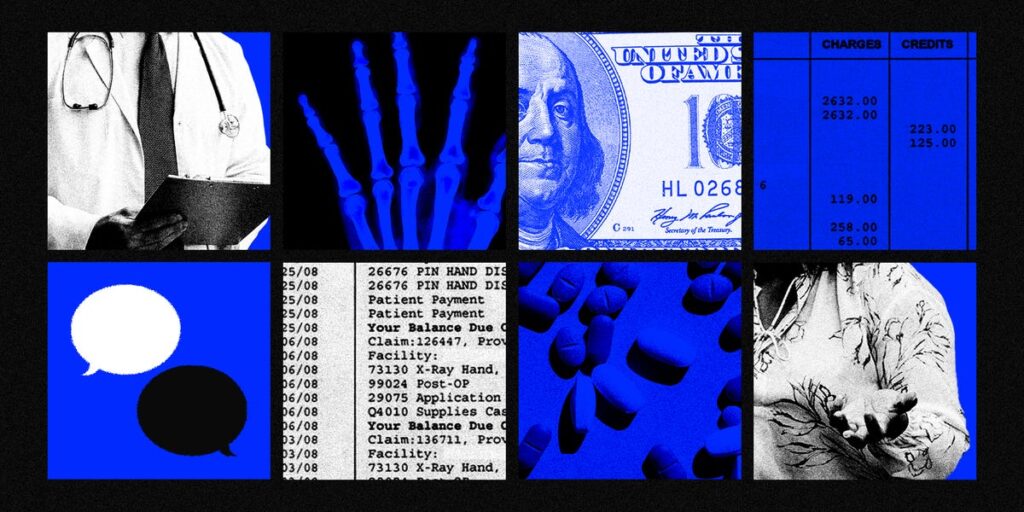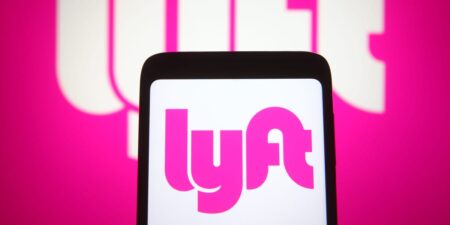- Some Americans have seen success when negotiating for a lower medical bills.
- Medical billing offices might be willing to offer a discount to collect an immediate payment.
- Healthcare experts shared how one might go about negotiating a medical bill.
For the last two years, Erin Duffy has studied a little-known strategy some people use to save money: negotiating their medical bills.
Initially, she just had anecdotal evidence of this strategy in action, Duffy, a research scientist at the University of Southern California who specializes in health policy and economics, told Business Insider.
One of her more recent anecdotes came from a colleague who received a medical bill they thought was “wildly high.” The person said they called the billing office and were immediately given three options.
Option No. 1 was to apply for financial aid if they were low-income, but they didn’t qualify. Option No. 2 was to set up a payment plan, which would spread out the cost over time but not reduce the amount. Option No. 3 was more to their liking: If they paid that day over the phone with a debit or credit card, then they’d get a discount.
“They paid less than half of the original bill amount, just because they were paying right away over the phone,” Duffy said, adding that this is sometimes called a “prompt pay.”
We want to hear from you. Are you struggling to pay your medical bills and would be comfortable sharing your story with a reporter? Please fill out this form.
While Duffy was intrigued by these stories, she said she found little research on the experiences of people who tried to reduce their medical bills. So, two years ago, she started creating a survey to help fill that void.
Americans are no strangers to negotiation. Every year, people negotiate their salaries and how much they pay for things like cable, internet, cellphone, car insurance, and rent bills. But when it comes to medical bills, many people just accept the cost, despite the fact that Americans collectively have billions of dollars in medical debt and spend more on healthcare than any other developed country.
Duffy’s survey through USC, which was published in August, asked more than 1,000 US adults last year whether they’d recently received a “problematic” medical bill that they thought they couldn’t afford, was unfairly high, or contained a mistake. The USC survey found that less than two-thirds of people who received a problematic medical bill decided to challenge it.
However, healthcare experts told BI that trying to negotiate medical bills — while far from a guaranteed strategy — is worth a shot.
Among the survey respondents who reached out to a billing office about an unaffordable bill, 49% said they received some form of price relief — including financial aid, bill cancellation, or a price drop. The survey also found that 62% of respondents who contacted the billing office to try to negotiate a lower bill — whether because they couldn’t afford or it because they thought the bill was unfairly high — were able to get the cost dropped.
“We don’t normally think about medical bills as something that you can negotiate, but it seems that sometimes you can,” Duffy said.
To be sure, most people Duffy surveyed didn’t have an issue with their bills — and many of those with an issue didn’t bother challenging the bills. Therefore, the sample size of people who contacted a billing office and pushed for a lower cost was small: Duffy said much more research is needed before any larger conclusions can be drawn.
However, the survey’s findings aligned with what Duffy and other healthcare industry experts have been hearing for years. If you’re persistent and a bit lucky, you might be able to negotiate a lower medical bill.
“It’s always worth it to ask”
Patricia Kelmar, senior director of healthcare campaigns for the consumer advocacy organization PIRG, regularly hears from Americans about their frustrations with healthcare costs. She said that trying to negotiate a medical bill sometimes pays off.
“Based on the dozens of conversations I have with patients who reach out to us with their medical bill problems, I know that negotiating prices works,” Kelmar told Business Insider, adding, “People do get discounts just by asking to pay less.”
Kelmar recalled an anecdote from a colleague who called a billing office two years ago after they received a medical bill that they thought would be challenging to pay off. The billing office came back with a proposal.
“They said, ‘We have a sale today,’ and they gave him like 20% off his bill,” Kelmar said, which amounted to a couple hundred dollars.
Offering people a discount could sometimes be in the best interest of billing offices. Their objective is to get people to pay their medical bills, but many people — whether it be for financial reasons or otherwise — don’t pay them in a timely manner. As of June 2023, about 5% of Americans, about 15 million people, had unpaid medical bills.
“I suspect that billing offices are willing to offer you a discount if you pay on the spot in person or on the phone because it’s so hard for them to collect patient payments,” Duffy said.
Healthcare centers rely on more predictable insurance payouts, rather than patients’ payments, to support their finances. However, some are beginning to demand patients pay in advance before performing certain procedures.
In the years ahead, Kelmar said increasing consolidation in the healthcare sector could reduce the amount of “individual decision-making” in medical billing offices, potentially making them less likely to dole out discounts. But for now, she said encouraging people to try to negotiate their medical bills is still worthwhile.
“Patients should have the confidence to ask for a lower price because we know that some people are getting a lower bill,” she said, adding “It’s always worth it to ask.”
How to negotiate a medical bill
Before anyone tries to negotiate a medical bill, Kelmar said they should do everything they can to ensure it’s accurate. This includes asking for itemized bills and appealing denied insurance claims.
“People should realize that AI is doing a lot of the denials and appealing gets human eyeballs on that denial,” she said.
Next, Kelmar said people should check if they qualify for financial assistance through a hospital policy or government program like Medicaid.
“That might actually eliminate your bill or give you a big discount,” she said.
If this doesn’t work, it might be worth trying to ask for a lower cost. Medical bills from healthcare providers tend to include a phone number for the billing office.
“They should just say, ‘I can pay this much today or by the end of the month — do you want me to pay that and forgive the rest?'” Kelmar said.
Kelmar said a billing office might be willing to reduce the bill if you put the payment on your credit card that day. She said this option could work for some people, but it’s worth being cautious. That’s because medical debt is subject to certain consumer protections that could be lost if one pays their medical bill with a credit card.
If negotiating doesn’t work, Kelmar said people should ask if they can be put on a payment plan to give them more time to pay their bills, adding that they should push for a low or no-interest plan.
Why some people don’t negotiate their medical bills
Duffy and Kelmar have a few theories about why some people don’t bother trying to negotiate their medical bills.
First, the US healthcare system is quite complicated, so it can be difficult for many people to understand their medical bills — much less have the confidence to challenge them. Some people might not be aware that challenging their medical bills is something they can even do or do not know how to go about it.
Additionally, negotiating a bill sometimes requires more than a single call — Kelmar said it can be a time-consuming process that requires persistence. Finding the time and energy can be difficult, particularly for people who are still recovering from a medical surgery or treatment.
Lastly, it could come down to one’s personality. Duffy said her survey found that people who are more extroverted — according to a standardized personality assessment — were more likely to challenge a problematic medical bill.
Kelmar wishes US healthcare costs were lower so fewer people would be stuck with steep medical bills, but until things change, she recommends people continue to advocate strongly for themselves.
“Be confident in asking for what you need and you may very well see your bill go down,” Kelmar said. “This isn’t a great system. We need to fix it.”
Read the full article here
















